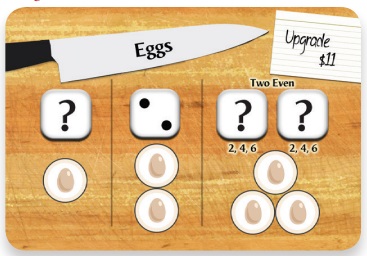There are several common themes that we see over and over again in tabletop board gaming. Fictional genres like fantasy and science-fiction are typically very well represented, as are historical games set during times of war. Every once in a while, though, a game comes along with a totally unique theme. The co-op board game we are looking at today is one of these, putting players in the role of workers at a Chinese restaurant who team up to meet the culinary needs of their customers in real time. Wok Star is a charming, tightly designed game that is immediately enjoyable for both inexperienced and veteran gamers.
Wok Star has a controversial history. The game had a very small original print run back in 2010. Another printing sold out very quickly, and though the game was getting quite a bit of buzz at this point, it was almost impossible to find a copy. In the summer of 2013, Wok Star went to Kickstarter in the care of new publisher Game Salute. After several delays, with a series of post-funding miscues, Wok Star has finally been delivered to backers and is in print once again.

Thankfully, the game itself is worth the wait. Wok Star is quite different from most games I’ve played. Players have a pool of dice to roll and manage, and can trade with each other for maximum efficiency. There is a fair bit of resource management going on, as well. It sounds easy on the surface, but all the action takes place on a timer, plus there are player powers and a random turn order that throw some delicious (if you’ll pardon the pun) complications in and add a bit of chaos to your planning. The end result is highly cooperative and quite satisfying.
As the game begins, you open your restaurant with a limited menu of three items: Fried Rice, Egg Rolls, and Lo Mein. A customer deck, full of hungry patrons and event cards, is assembled. Preparation cards, where ingredients for each of these recipes can be added to the collective pool, are distributed among the players. As the round begins, players roll all of their dice, and they can spend these dice in various ways to create ingredients like pork, bok choy, onions and peppers, or egg roll wraps. When you draw from the customer deck, you have until the timer goes off to use dice, add ingredients to the pool, and spend the ingredients to satisfy the customer.
